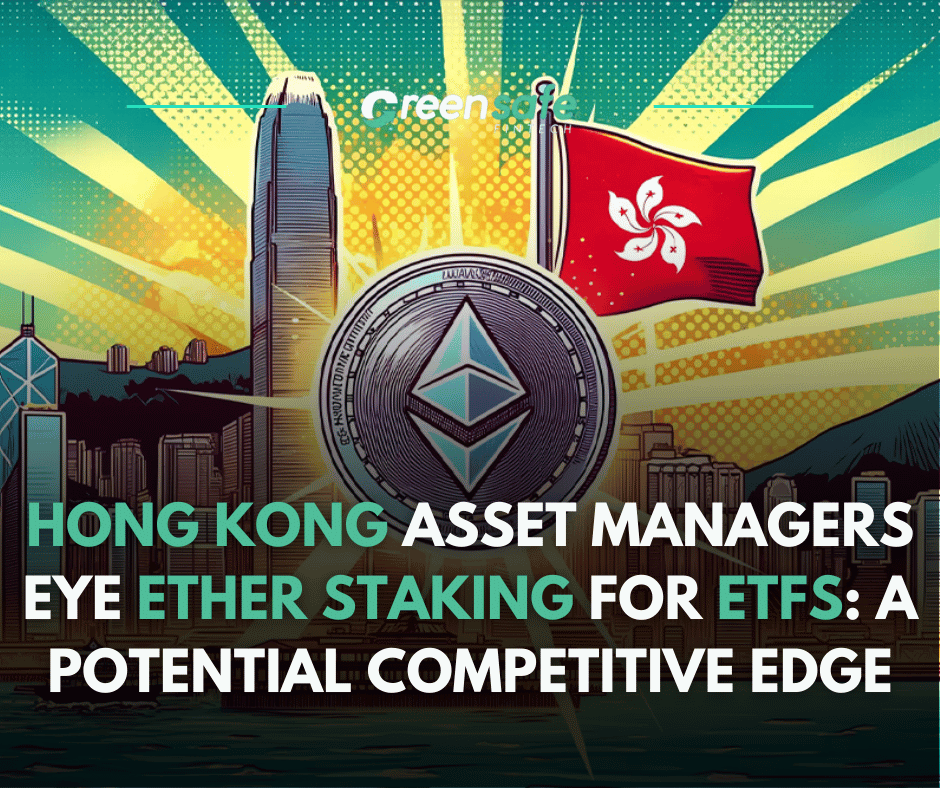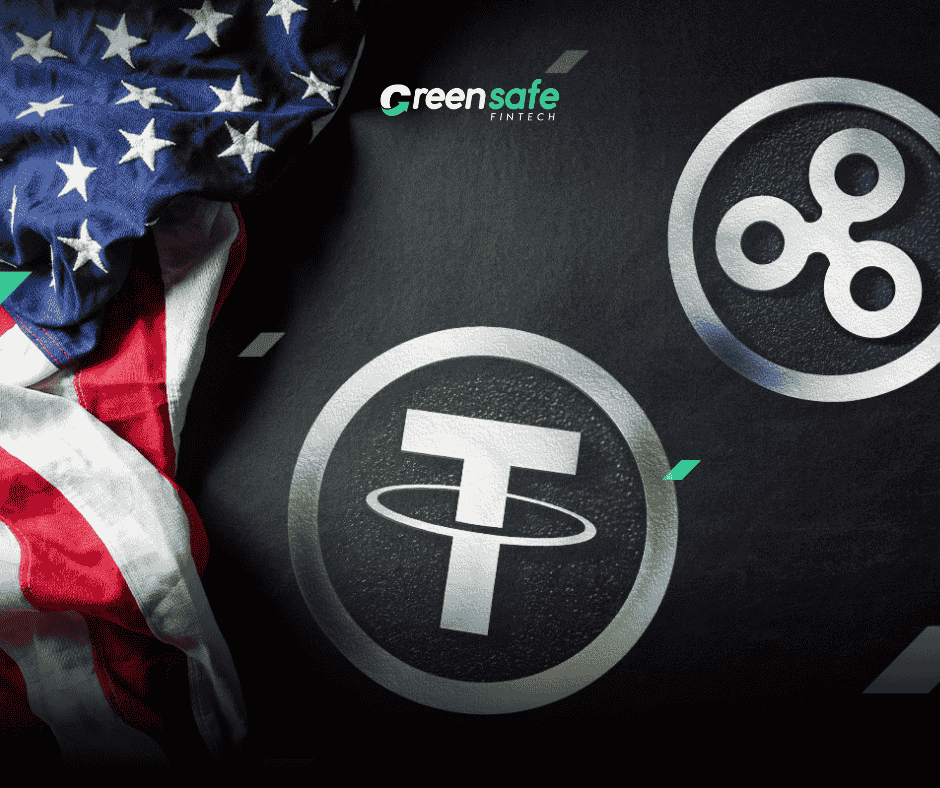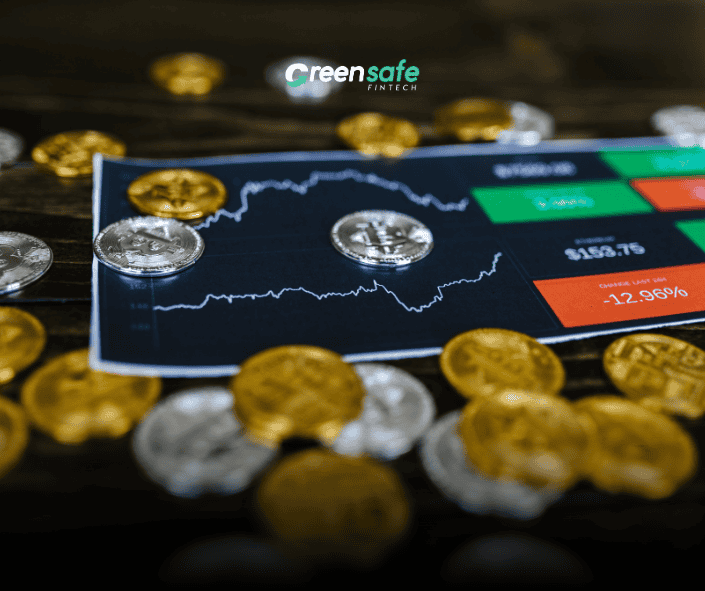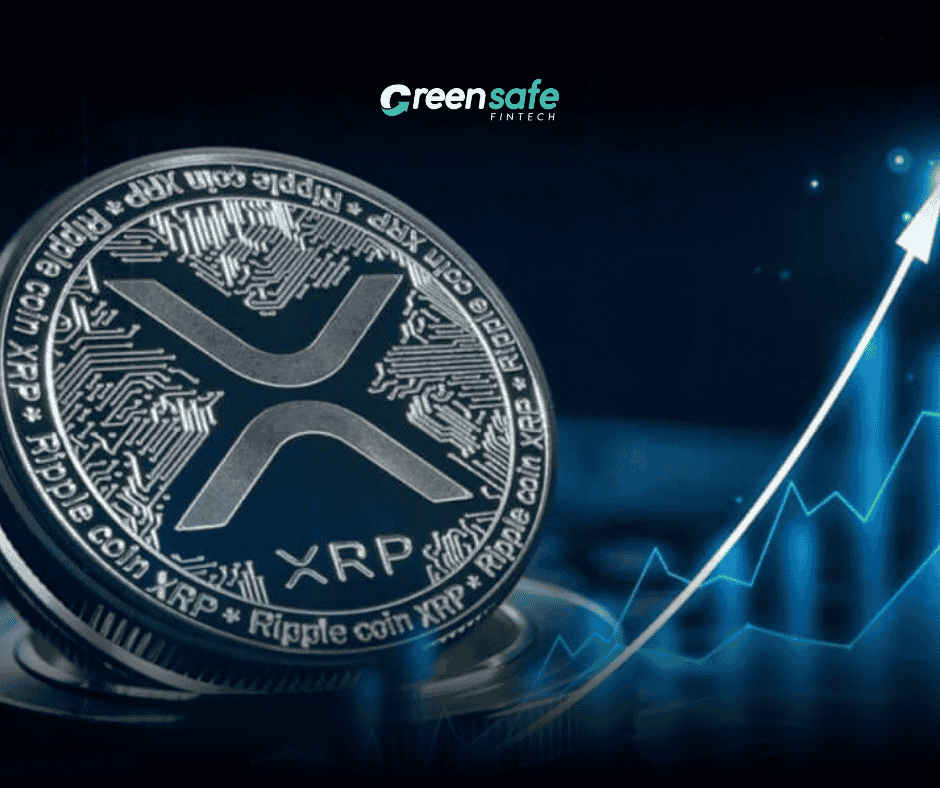Introduction
The landscape of cryptocurrency investment is evolving rapidly, with Hong Kong asset managers now working diligently to integrate ether staking within their spot ether exchange-traded funds (ETFs). This move aims to secure the approval of staking rewards, potentially setting a precedent in the Asian market and offering a competitive edge over the U.S. ETFs. Yat Siu, Chairman of Animoca Brands, highlights the optimistic outlook for this development within the year, emphasizing its potential impact on the market.
Definition of Ether Staking
Ether staking involves locking up a certain amount of Ethereum (ETH) to support the operations of a blockchain network. In return, stakers earn rewards, which can be an attractive feature for investors seeking additional returns on their crypto holdings.
Overview of Exchange-Traded Funds (ETFs)
ETFs are investment funds traded on stock exchanges, similar to stocks. They hold assets such as stocks, commodities, or cryptocurrencies and aim to offer diversification, low costs, and liquidity to investors.
Significance of Combining Ether Staking with ETFs
Integrating ether staking with ETFs can enhance the returns for investors by providing staking rewards. This combination can attract more investors by offering a unique value proposition, differentiating Hong Kong’s ETFs from those in other markets, especially the U.S.
Current Landscape
Hong Kong’s Position in the Global Crypto Market
Hong Kong has emerged as a significant player in the global crypto market, with its regulatory framework and financial infrastructure supporting the growth of crypto assets and services.
Performance of Hong Kong’s Crypto ETFs
Despite the initial excitement, the performance of Hong Kong’s spot crypto ETFs has been relatively modest. The trading volumes of these ETFs have not matched the figures seen in the U.S., highlighting a potential area for improvement and innovation.
Comparison with U.S. Crypto ETFs
In contrast, the U.S. crypto ETFs have shown substantial trading volumes, indicating strong investor interest. This discrepancy underscores the importance of innovation, such as integrating staking rewards, to boost Hong Kong’s market position.
Key Players and Their Roles
Animoca Brands
Animoca Brands, a prominent player in the digital entertainment, blockchain, and gamification sectors, is actively involved in the push for ether staking within ETFs. Yat Siu, the company’s chairman, is a vocal advocate for this initiative, citing its potential to enhance the attractiveness of Hong Kong’s ETFs significantly.
HashKey and Bosera
HashKey, in collaboration with Bosera, co-manages two spot bitcoin and ether ETFs in Hong Kong. The company is currently formulating a proposal to incorporate ether staking, aiming to balance rewards and risks effectively.
Blockdaemon
Blockdaemon, a blockchain infrastructure provider, is engaging in discussions with Hong Kong ETF issuers and custodians to explore the feasibility of offering staking services. Glenn Woo, head of sales for APAC at Blockdaemon, expresses a positive outlook on achieving approval for this feature.
Regulatory Environment
Hong Kong Securities and Futures Commission (SFC)
The SFC is the regulatory body overseeing securities and futures markets in Hong Kong. While the SFC has not yet commented on the proposal for ether staking in ETFs, ongoing discussions suggest a possible favorable outcome.
Regulatory Discussions and Prospects
The likelihood of approval for ether staking in Hong Kong appears high, especially compared to the U.S., where regulatory bodies have taken a more cautious approach. This regulatory landscape could position Hong Kong as a leader in innovative crypto investment products.
Comparison with U.S. Regulatory Stance
The U.S. Securities and Exchange Commission (SEC) has explicitly stated its reluctance to approve staking features in ETFs, at least for the time being. This divergence in regulatory approaches may give Hong Kong a competitive edge in the global market.
Technical Aspects of Ether Staking
How Ether Staking Works
Ether staking involves validators locking up their ETH to help secure the network and validate transactions. In return, they receive staking rewards, which are proportional to the amount of ETH staked and the duration of staking.
Risks and Rewards Associated with Staking
While ether staking offers attractive rewards, it also comes with risks such as the potential for slashing (loss of staked ETH due to misbehavior) and the opportunity cost of locking up assets for a period. Effective risk management strategies are crucial for mitigating these concerns.
Technical Integration with ETFs
Integrating ether staking with ETFs requires robust technical infrastructure to ensure seamless staking operations, secure asset custody, and transparent reporting of staking rewards to investors.
Benefits of Including Staking in ETFs
Enhanced Returns for Investors
Incorporating staking rewards can significantly boost the returns on ether ETFs, making them more attractive to investors seeking both price appreciation and income generation.
Competitive Advantage over Non-Staking ETFs
By offering staking rewards, Hong Kong’s ether ETFs can differentiate themselves from non-staking ETFs, potentially capturing a larger market share and attracting a broader investor base.
Potential to Attract More Investors
The prospect of earning additional returns through staking can attract both retail and institutional investors, enhancing the liquidity and overall performance of the ETFs.
Challenges and Concerns
Regulatory Hurdles
Navigating the regulatory landscape is a critical challenge, requiring compliance with existing regulations and proactive engagement with regulatory bodies to secure approval for staking features.
Technical and Security Challenges
Implementing staking within ETFs involves addressing technical and security challenges, such as ensuring the safety of staked assets, preventing slashing, and maintaining robust infrastructure for staking operations.
Market Acceptance and Adoption
Gaining market acceptance and driving adoption of ether staking in ETFs requires effective communication of the benefits and risks to investors, as well as demonstrating the reliability and performance of staking operations.
Expert Insights
Perspectives from Industry Leaders
Industry leaders like Yat Siu and Glenn Woo are optimistic about the prospects of ether staking in Hong Kong’s ETFs. They highlight the potential for enhanced returns, increased investor interest, and a competitive edge in the global market.
Future Prospects
Potential Timelines for Approval and Implementation
The timeline for approval and implementation of ether staking in Hong Kong’s ETFs is optimistic, with industry leaders hoping for progress within the year. The outcome of regulatory discussions will be a crucial determinant.
Long-Term Impact on Hong Kong’s Crypto Market
Successful integration of staking in ETFs could position Hong Kong as a leading hub for innovative crypto investment products, attracting more investors and boosting the market’s growth and development.
Predictions for Global Adoption of Staking in ETFs
If Hong Kong successfully implements ether staking in ETFs, it could set a precedent for other markets to follow. This development may encourage broader global adoption of staking features in crypto ETFs, enhancing their attractiveness and market penetration.












